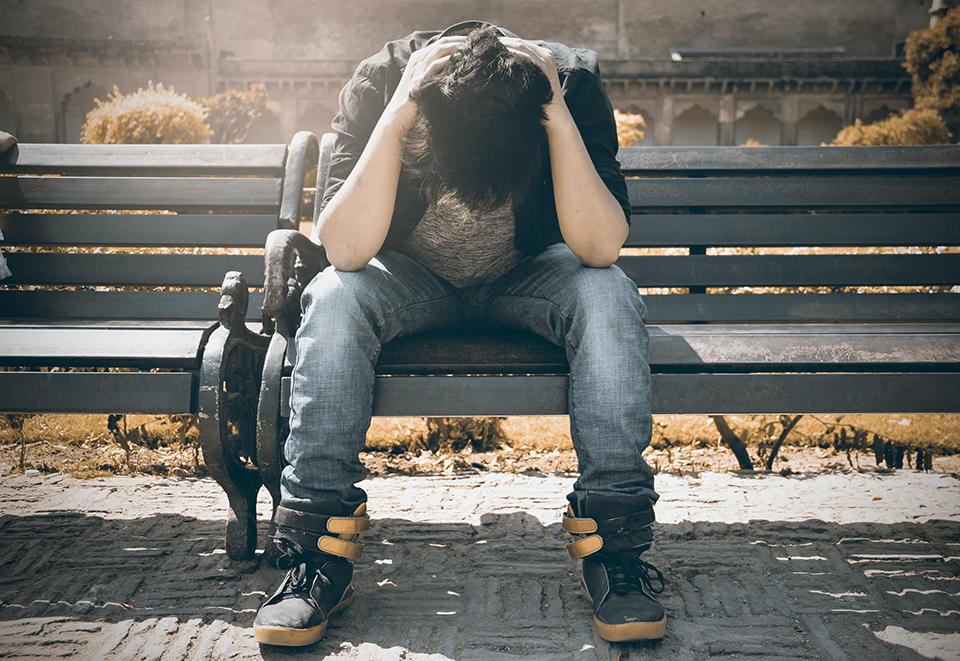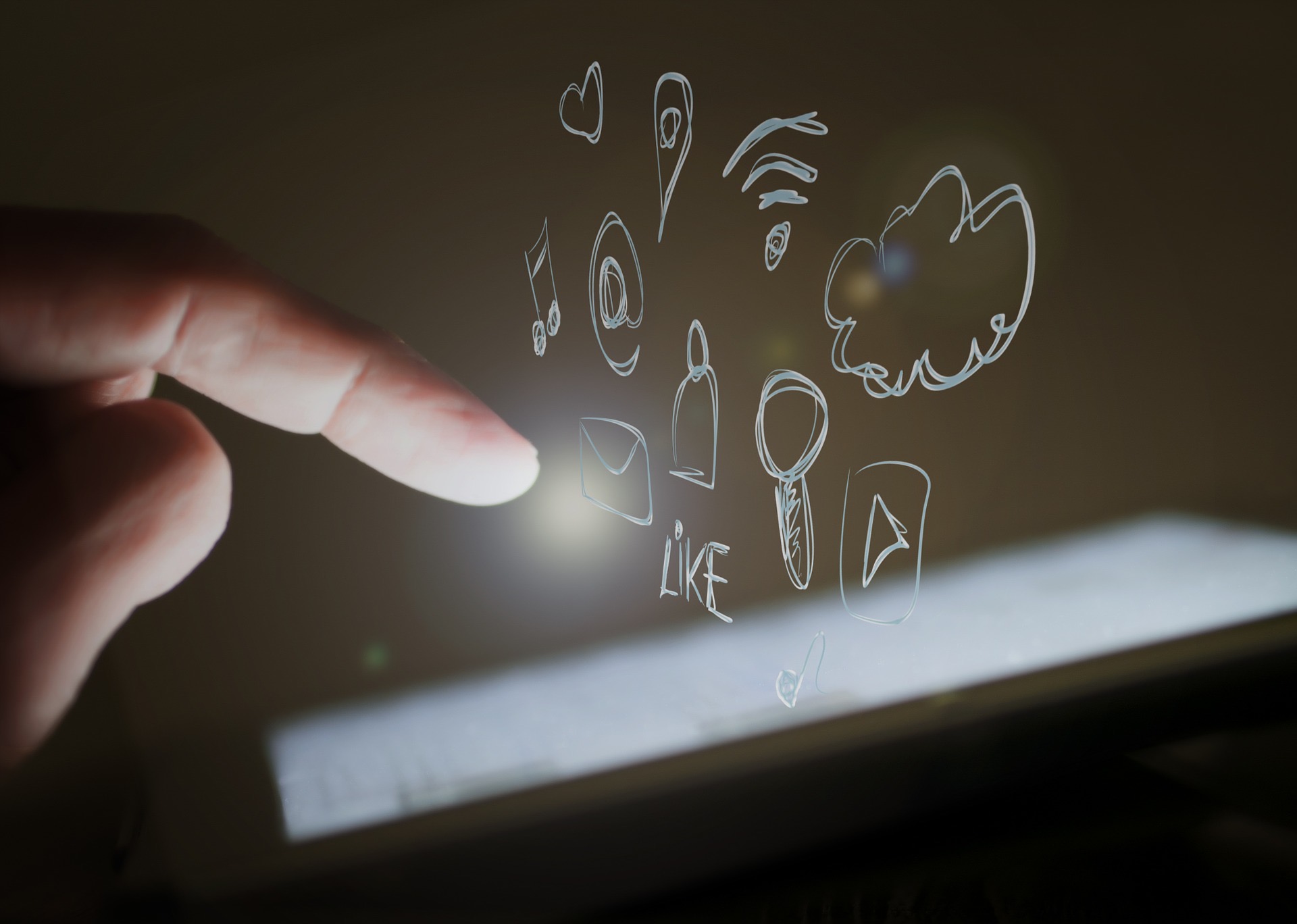If something is free, you are the product, says Social Dilemma, a documentary about the negative impact of social networks. While social media companies make money, people create a connection to virtual reality, which separates more than it connects. The reason for that are the negative influences of social networks on an individual´s mental life, which are reflected in alienation, decreased concentration, insomnia, and, consequently, addiction, depression and anxiety.
Photo credits: pexels.com/ Photo credit: Andrea Piacquadio
The Unicef research shows that more than two thirds of young people (74%) have profiles on social networks, which are mostly used for communication and entertainment. However, its results also say that interaction on social networks can lead to numerous negative psychological effects.
Approximately one third of the surveyed students have problems due to the amount of time they spend online or get into conflicts with family and friends. Slightly less than a half unsuccessfully try to spend less time on the Internet and neglect socializing and obligations (eg school assignments), feel bad when they cannot be online, while almost a fifth neglect basic biological needs (need for food, sleep), it is written on the Unicef website.
Every user of social networks is part of a complex world that hides itself behind the screen. It is a world in which we always have an impression that something is happening, and every separation from it creates the feeling that we are missing something important. Therefore, every person will almost immediately, without delay, open the received notification, in order to be up to date with events on social networks. Thus, by not missing anything on there, young people will create a perception of connection with other users. Consequently, in this false state of sufficiency, real social interaction disappears.
Inevitably present, addiction to social networks can create alienation and lead to the avoidance of live contact; it also leads to a psychological comfort that confirms our unrealistic expectation of a safe cyber world, reinforces the need for cyber networking and reduces the so-called fear of missing out. For example, a young person may think: Something important is happening there and I have to be a part of it; that's how I feel like I exist, that’s the only way I feel real… explains Jovana Vanušić, a psychology student who has conducted several research projects based on the connection of social networks to alienation.
Can increased alienation and depression be connceted with social networks use?
By using the social networks, everyone creates an identity of their choice, which doesn’t have to be similar to the real one. The screen barrier makes virtual contact easier than the face-to-face encounter. While they are behind the screen, individuals have time to think about their actions and leave an impression they want to.
As psychologist from Albania, Erinda Meta says, it was noted that the increasingly widespread use of social media to promote oneself on the Internet can be a key factor in the depersonalization of the human being. These networks strongly undermine the true identity of the individual, which has grown and expanded on the Internet, says Erinda. As she thinks, social platforms do that by giving a voice to individual, making him feel always accepted by many more individuals, no matter what he does.
Touchscreen, Photo credit: pixabay.com
Therefore, it is not surprising that individuals will experience a positive feeling, because this new, virtual identity is respected and loved, when someone confirms it via likes or comments. Social networks are designed to encourage the secretion of dopamine, the hormone of happiness, every time we receive such gratification in using them. That is why we often see the above as a kind of reward after a hard day, a positive reinforcement that will stimulate us to use them more often.
There are only two industries that call their customers ´users´: illegal drugs and software, says Edward Tufte, a professor emeritus of computer science, political science and statistics at Yale University in the documentary Social dilemma.
Although a positive identity brings a positive feeling to the person who created it, in others who admire that identity, it often leads to negative feelings. As Aleksa Anđelić, a communicologist and journalist who has done a research on influencers, explains, building identity through the identity of role models, in young people can lead to various problems. The most common problem is the one with self-confidence. If a twelve year old child does not look like his thirty year old ´idol´, a desire of unnatural change will develop, he says.
Thinking about own self worth, Photo credits: pixabay.com/Anastasia Gepp
Thus, it is not surprising that the use of social networks leads to addiction that forces young people to scroll compulsively, without a clear goal, the newsfeed of social networks. This scattered attention is also transferred to everyday activities, so young people lose concentration due to the burden of information. Because of that, they can´t read or watch the content that lasts longer than a few minutes. Sometimes the mental strain they bring is equivalent to what we would feel if we were constantly sitting in a cramped room with 500 people every day. As a result, social media users often become alienated from the real world, and that alienation is a common cause of depression.
Depression is a common mental disorder affecting more than 264 million people worldwide. It is characterized by persistent sadness and a lack of interest or pleasure in previously rewarding or enjoyable activities, it is written on the World Health Organization site.
Strating from the beginning, the first disorder that can be caused by Internet and consequently lead to depression and similar mental health issues is addiction, According to Erinda Meta, in parallel with the spread of the Internet and social media, there is a trend towards excessive or inadequate use of modern technology, which can lead to the development of a new Internet addiction. The most related constructs to this phenomenon have emerged: self-esteem, depression, anxiety, perfectionism, and metacognitive beliefs. That is why the use of the network can cause psychological dependence and develop psychopathological disorders, she explains.

Sad girl, Photo credit: pexels.com /Polina Zimmerman
World Health Organization says for The Guardian that from 2005 to 2015, cases of depressive illness increased by nearly a fifth. Thus, since the rapid development of social networks, the rate of young people with confirmed depression has skyrocketed. In Serbia, 5 to 10 % of the kids have shown latent symptoms depression, while 8% of adolescents suffers from severe depressive disorder, according to the results of the Institute for public health Dr Milan Jovanović Batut.
Although it seems more than a coincidence that rates of anxiety and depression in young people have risen in the same period as social network expansion, it isn´t proved that these two are linked.
However, according to the reaserches of the London University Essex, done in 2020. and published in clinical journal EClinicalMedicine, there are various symptoms of depression that are connected with frequent use of social networks. Sleep disorder, dissatisfaction with own body and lack of self-confidence are just some of them. These researches have also shown that previously mentioned symptoms are more frequently identified in young girls.
Impact that social platforms have on self-esteem
People use social networks to create friendships with peers from the region, whom they afterwards meet in person, but creating the perfect image of themselves in that unrealistic world can harm what they already are in the real one. This particularly stands for young girls who look up to some fake personality on social networks and perceive it as a role model.
Many girls are bombarded with their friends posting the most perfect pictures of themselves, or they’re following celebrities and influencers who do a lot of Photoshopping and have makeup and hair teams, explains Dr. Hamlet for Child Mind Institute.
According to pictures posted on their profile, it can be concluded that girls from Western Balkans mostly look up to trends that are ser, spread around the world and followed by the domestic influencers. Sometimes, those influencers are also being influenced by their followers, so they experience the biggest effect on their self-esteem because of the hate comments on their profiles.

Girls looking at the phone, Photo credit: pexels.com /Andrea Piacq
All this influencers´ content can have a big impact on the self-confidence of young people from the region – similar to the one singers and movie stars had in ´80s, ´90s and in the beginning of the 21st century. Parents and teachers need to explain them that what they see on the Internet is not always like that and not everything is always perfect and beautiful. They need to know that it's not all about the money, expensive cars or branded wardrobe, says Aleksa Anđelić.
As one of the problems professors of Psychology at the University of British Columbia, Jessica Tracy and Richard Robbins, point out in their research that people who suffer from low self-esteem often tend to blame others for their social failures. Such tendencies would cause avoidance of people, unfamiliar contexts, and a general social detachment, increasing the risks of social anxiety, they explained. That’s why alienation and low self-esteem are strongly connected and their glue is made of the binary world of social networks.

A sad guy; Photo credit: pexels.com/ Inzmam Khan
Alienation from the world is caused by spending too much time on phones or computers – following their profiles, content or even fan pages of their favorite YouTubers, TickTockers or Instagrammers. That alienation can be a cause of addiction and depression, which of course is not good. Given that we live in the digital age and the time of social networks, where a lot is happening on the Internet, and young people spend a lot of time there, it is important to direct them to those contents that will be interesting and educational at the same time, explains Aleksa Anđelić.
However, this problem needs to find its cause, and most of the studies are outdated and they focus only on Facebook, leaving behind other social networks that are more commonly used nowadays such as Instagram and Tick-Tock. But the main cause still remains the same –unawareness about the effects of social networks and consequently their misuse.
If we use social networks in an adequate way, they can also lead to positive effects. People can always learn something new, such as a language, a hobby like drawing, or using different programs and applications.
Creativity; Photo credit: pixabay.com/ptra
Many young people on social networks can be encouraged to be the best version of themselves and to develop as many different skills as possible. If used in a controlled way, they can break geographical barriers and bring people closer together. However, everyone should keep in mind that virtual reality is not the main one. It is important to take the best of both worlds.
Key words/ Tags: social networks, psychological effects of social networks, depression, anxiety, alienation, Internet, social media, young people, Western Balkans, psychology, communicology, Erinda Meta, Jovana Vanušić, Aleksa Anđelić, Serbia, Albania
Authors:
- Aleksandra Ničić (Faculty of Political Sciences – University of Belgrade)
- Rogert Blloshmi (Faculty of Human Sciences – University of Elbasan)
Mentors:
- Assistant professor Marko Nedeljković, Department of Journalism and Communication Studies, Faculty of Political Sciences - University of Belgrade
- Lecturer at the University of Elbasan, Department of Literature and Journalism, Nirvana Shkëlzeni
-1668008579.JPG)













